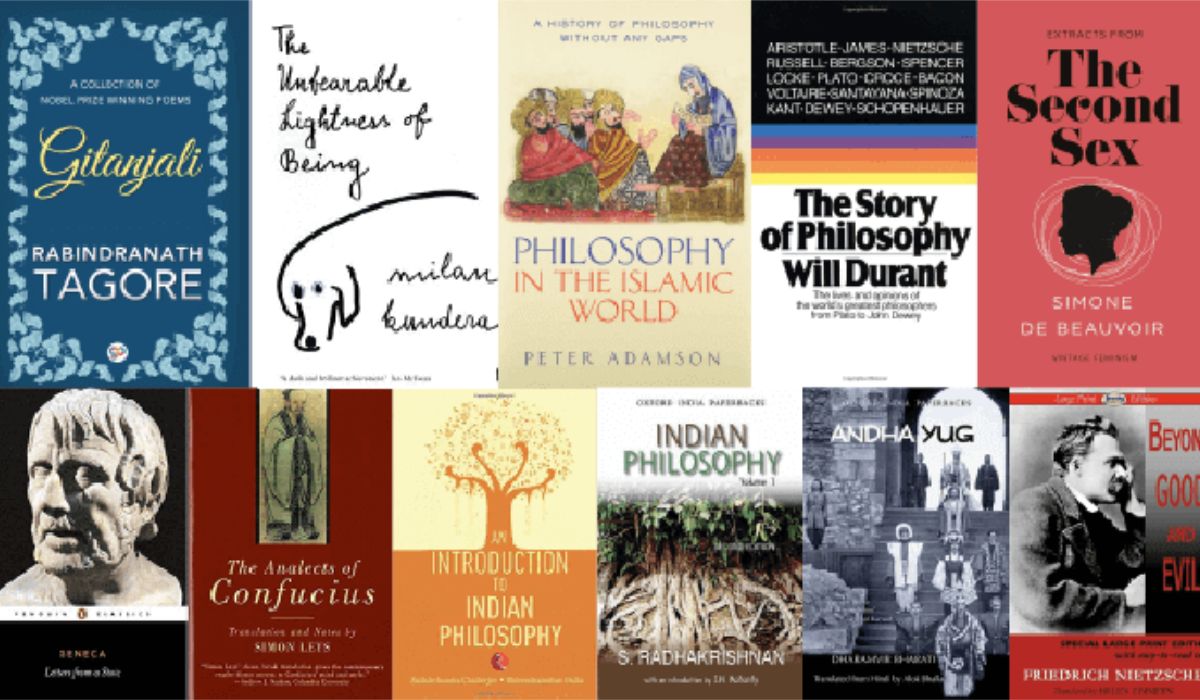The pursuit of wisdom, or philosophy, has been a driving force in the development of human culture for countless years. Many profound philosophical works have been written as a result of humankind’s insatiable thirst for wisdom philosophy books and insight, and its relentless search of the truth. In this essay, we’ll go into the realm of philosophical literature and discuss its relevance in the modern world.
What Is Philosophy?
Philosophy is a branch of study that aims to answer fundamental issues about being, knowing, having value, thinking, and experiencing the world. It explores metaphysical topics like reality, ethics, logic, and aesthetics in an effort to help its readers better comprehend and make sense of their surroundings. Philosophy is an integral aspect of education since it fosters a growth mindset and the capacity for critical thought.
The Importance of Philosophy Books
Books written by philosophers are crucial in spreading their ideas and changing people’s worldviews. These books can help readers develop their critical thinking skills, encourage them to question accepted ideas, and deepen their understanding of philosophical principles.
Top 5 Classic Philosophy Books
Plato’s “The Republic”
Plato’s “The Republic” is a cornerstone of Western philosophy because it explores deep questions about the nature of the soul, as well as justice and morality in an ideal society. The allegory of the cave, presented there, is still a potent metaphor for comprehending human cognition.
Aristotle’s “Nicomachean Ethics”
In “Nicomachean Ethics,” Aristotle investigates what makes for a good existence, including what it takes to be happy and virtuous. His moral theories are still widely read because they teach important lessons about how to achieve happiness and success.
Immanuel Kant’s “Critique of Pure Reason”
The “Critique of Pure Reason” by Kant shook up the fields of metaphysics and epistemology. The book paves the ground for contemporary philosophical inquiry by examining the boundaries of human understanding and the connection between experience and insight.
Friedrich Nietzsche’s “Thus Spoke Zarathustra”
“Thus Spoke Zarathustra,” offers his famous concept of the “Ubermensch” or “Superman.” It takes issue with conventional morality and promotes striving for personal excellence and triumph over one’s weaknesses.
Jean-Paul Sartre’s “Being and Nothingness”
An essential existentialist essay, “Being and Nothingness” explores the idea of personal agency and independence. Sartre delves deep into the knotty issues of human being, free will, and genuineness.
Modern Philosophy Books Worth Reading
Alain de Botton’s “The Consolations of Philosophy”
Books on Contemporary Philosophy That Are Comforting to Read 5 Alain de Botton, “The Consolations of Philosophy”
This book is de Botton’s exploration of the relevance of several philosophers’ ideas to modern life. It provides philosophical advice and comfort in times of need.
Peter Singer’s “Practical Ethics”
Singer’s “Practical Ethics” covers a wide range of contemporary moral challenges, from the treatment of animals to poverty and environmental issues. It forces viewers to reevaluate their personal duties to society.
Yuval Noah Harari’s “Sapiens: A Brief History of Humankind”
While “Sapiens” isn’t meant to be read as a philosophy textbook, it does offer some philosophical insight into humanity’s past and future. Harari investigates how widespread myths influence modern civilizations.
Susan Neiman’s “Moral Clarity: A Guide for Grown-Up Idealists”
Neiman’s “Moral Clarity” explores what it means to be morally mature and why it’s crucial to be true to one’s ideals in a multifaceted environment. Readers are urged to maintain a realistic idealist outlook.
Daniel C. Dennett’s “Breaking the Spell: Religion as a Natural Phenomenon”
Dennett’s book provides a philosophical viewpoint on religion’s place in human civilization by exploring its natural beginnings.
How to Choose the Right Philosophy Book for You
Reading philosophical works can have a profound effect on one’s outlook and mental development. Here are some things to keep in mind while picking a philosophy book to help you get the most out of your reading experience:
Identify Your Interests and Philosophical Questions
Think deeply about the philosophical issues that most fascinate you. How about existentialism, politics, ethics, or metaphysics? Discovering what you’re passionate about will lead you to books that truly engage you.
Consider the Author’s Writing Style
There is a wide range of writing styles in philosophy texts, from the dry and academic to the lively and entertaining. The best way to identify an author whose style you enjoy reading and whose philosophy you understand is to read widely.
Read Reviews and Recommendations
Try asking other readers or trusted sources for suggestions. Reviews can shed light on a book’s accessibility, profundity, and overall impact on readers.
Explore Various Philosophical Schools of Thought
Philosophy covers a vast range of viewpoints and beliefs, thus it’s important to investigate different schools of thought. Read literature from a variety of philosophies to broaden your perspective and understanding.
Check for Translations and Editions
Selecting a trustworthy translation and edition of a classic work of philosophy is an important first step in your exploration of that work. The translation of a philosophical text can have a profound effect on the reader’s understanding of the original text.
Tips for Reading Philosophy Books Effectively
It takes concentration and commitment to read philosophical works. Follow these suggestions to improve your reading experience:
Take Notes and Reflect
Take notes on the main points, interesting passages, and questions that occur as you read. Taking notes allows you to digest information at your own pace and promotes a more in-depth comprehension.
Engage in Discussions and Book Clubs
Participating in philosophical debates or reading groups allows you to exchange perspectives and gain a deeper understanding of the subject matter.
Revisit and Reread
Books about philosophy typically include thought-provoking concepts that are worth considering again. You can learn more with a second reading since you’ll catch details you missed the first time around.
Don’t Rush, Take Your Time
There is no need to rush through philosophical readings; instead, think carefully about the ideas being offered.
Embrace Challenging Concepts
It takes a lot of brain power to fully grasp some philosophical ideas. Accept the challenge and think about complex topics without closing your thoughts to them.
The Influence of Philosophy Books on Society
What a Difference Philosophy Books Have Made to Society Throughout history, philosophy books have made a profound impact on culture. They have prompted people to question their assumptions about the world, sparking social movements and challenging authoritarian regimes.
Philosophy Books in the Digital Age
Philosophy books have survived and thrived in the digital age. The widespread availability of philosophical literature in digital and audiobook formats has helped to create a global philosophical fan base.
Why Philosophy Books Are Still Relevant Today
Philosophy is still important because it seeks to answer fundamental issues about the nature of reality, human nature, and the ethics of technological progress. In a world that is always shifting, the eternal wisdom and introspection found in philosophy texts can be invaluable.
Conclusion
Reading a philosophy book can open the door to new ideas and help you develop your mind. Philosophical thought has the potential to deepen our comprehension of the human condition while also motivating us to pursue wisdom and truth. Philosophy books, whether they cover the works of ancient philosophers or contemporary thinkers, are rich in information and ideas.











